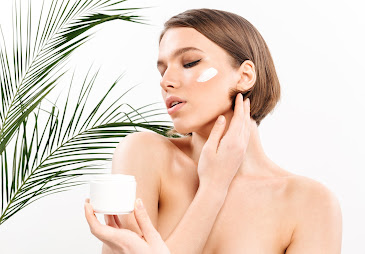How to Deal with Common Skin Concerns?
It’s not uncommon for people to face skin concerns that affect their confidence and quality of life. Acne, rosacea, and eczema are three of the most prevalent conditions. While they vary in symptoms and causes, they can all be managed effectively with the right approach. In this article, we’ll explore practical, science-backed strategies to deal with these common skin concerns.
Understanding AcneAcne affects millions worldwide,
making it one of the most common skin issues. It typically results from clogged
pores due to excess sebum, dead skin cells, and bacteria. While it’s most
common during adolescence, adults can also experience acne, particularly
hormonal breakouts.
Causes
of Acne
- Hormonal fluctuations
- Excess oil production
- Bacteria (Propionibacterium acnes)
- Poor skincare habits
- Genetic predisposition
How
to Manage Acne
- Cleanse Gently
Over-cleansing can strip your skin, leading to increased oil production. - Incorporate Acne-Fighting Ingredients
- Salicylic Acid:
Helps exfoliate and unclog pores.
- Benzoyl Peroxide: Reduces bacteria and inflammation.
- Retinoids:
Promote cell turnover to prevent clogged pores.
- Hydrate Your Skin
Many people with acne avoid moisturizers, fearing they’ll worsen their condition. However, using an oil-free, lightweight moisturizer can help maintain your skin’s barrier. - Avoid Picking at Pimples
Picking can lead to scarring and worsen inflammation. Use spot treatments or hydrocolloid patches instead. - Consult a Dermatologist
For severe or persistent acne, consult a dermatologist. They may prescribe treatments like oral antibiotics, hormonal therapy, or isotretinoin.
Understanding
Rosacea
Rosacea is a chronic skin condition
characterized by facial redness, visible blood vessels, and sometimes small,
acne-like bumps. Though its exact cause is unknown, triggers like sunlight,
spicy foods, and stress often exacerbate symptoms.
- Genetic factors
- Immune system overreaction
- Environmental and lifestyle triggers
- Demodex mites (tiny skin-dwelling mites)
How
to Manage Rosacea
- Identify Your Triggers
Keep a skincare diary to track and avoid triggers such as: - Spicy foods
- Alcohol
- Hot beverages
- Extreme temperatures
- Use Gentle Skincare Products
Avoid harsh cleansers, scrubs, and alcohol-based products that can irritate sensitive skin. Opt for soothing ingredients like niacinamide and ceramides. - Protect Your Skin from the Sun
Sun exposure can worsen rosacea. Use a broad-spectrum SPF 30+ sunscreen daily. Choose physical sunscreens with zinc oxide or titanium dioxide, as they’re less likely to irritate. - Calm Flare-Ups
Apply cold compresses or calming creams with ingredients like green tea or aloe vera to reduce redness during a flare-up. - Medical Treatments
- Topical Medications: Metronidazole, azelaic acid, or ivermectin can
reduce redness and bumps.
- Laser Therapy:
Targets visible blood vessels to reduce redness.
- Oral Antibiotics: For severe cases, your doctor may prescribe
doxycycline or similar antibiotics.
Understanding
Eczema
Eczema, or atopic dermatitis, is a
condition that causes itchy, inflamed, and dry skin. Eczema flares are often linked to
allergens, irritants, or stress.
Causes
of Eczema
- Genetic mutations affecting the skin barrier
- Environmental triggers (e.g., dust mites, pollen,
detergents)
- Immune system dysfunction
How
to Manage Eczema
- Moisturize Regularly
Hydration is key for eczema-prone skin. Use thick, fragrance-free emollients or creams, especially after bathing. Ingredients like ceramides, glycerin, and colloidal oatmeal can help restore the skin barrier. - Avoid Irritants
Identify and avoid potential irritants, such as: - Fragranced skincare products
- Harsh soaps or detergents
- Fabrics like wool
- Use Anti-Itch Treatments
To relieve itching, consider: - Over-the-counter hydrocortisone creams
- Prescription steroid creams for severe flares
- Antihistamines to reduce itching at night
- Take Short, Lukewarm Showers
Hot water can strip your skin of moisture and worsen eczema. Limit showers to 10 minutes and pat your skin dry gently. - Manage Stress
Stress is a known trigger for eczema. you have to manage the stress. - See a Dermatologist
If over-the-counter solutions aren’t effective, a dermatologist may recommend prescription treatments, such as topical calcineurin inhibitors (e.g., tacrolimus) or biologic drugs like dupilumab.
General
Skincare Tips for All Skin Concerns
- Patch Test New Products
Before introducing a new product, test it on a small area of your skin to ensure it doesn’t cause irritation. - Avoid Over-Exfoliating
While exfoliation can help with acne and clogged pores, overdoing it can compromise the skin barrier, worsening rosacea and eczema. - Focus on pH Balance
Healthy skin maintains a slightly acidic pH. Use pH-balanced cleansers and avoid overly alkaline soaps. - Stay Hydrated and Maintain a Healthy Diet
Certain foods, like those high in sugar or dairy, may exacerbate acne or eczema in some individuals. - Seek Professional Advice
For persistent or severe symptoms, a dermatologist’s guidance is invaluable. They can provide tailored advice and medical treatments that target your specific concerns.
Conclusion
Though they may
be challenging to manage, understanding the underlying causes and adopting a
tailored skincare routine can help you maintain healthy, radiant skin. By using
the right products, avoiding triggers, and consulting with a dermatologist when
necessary, you can take control of your skin’s health and regain your
confidence.
Investing time in understanding your skin and addressing its unique needs is the first step towards long-term skin wellness.





Comments
Post a Comment